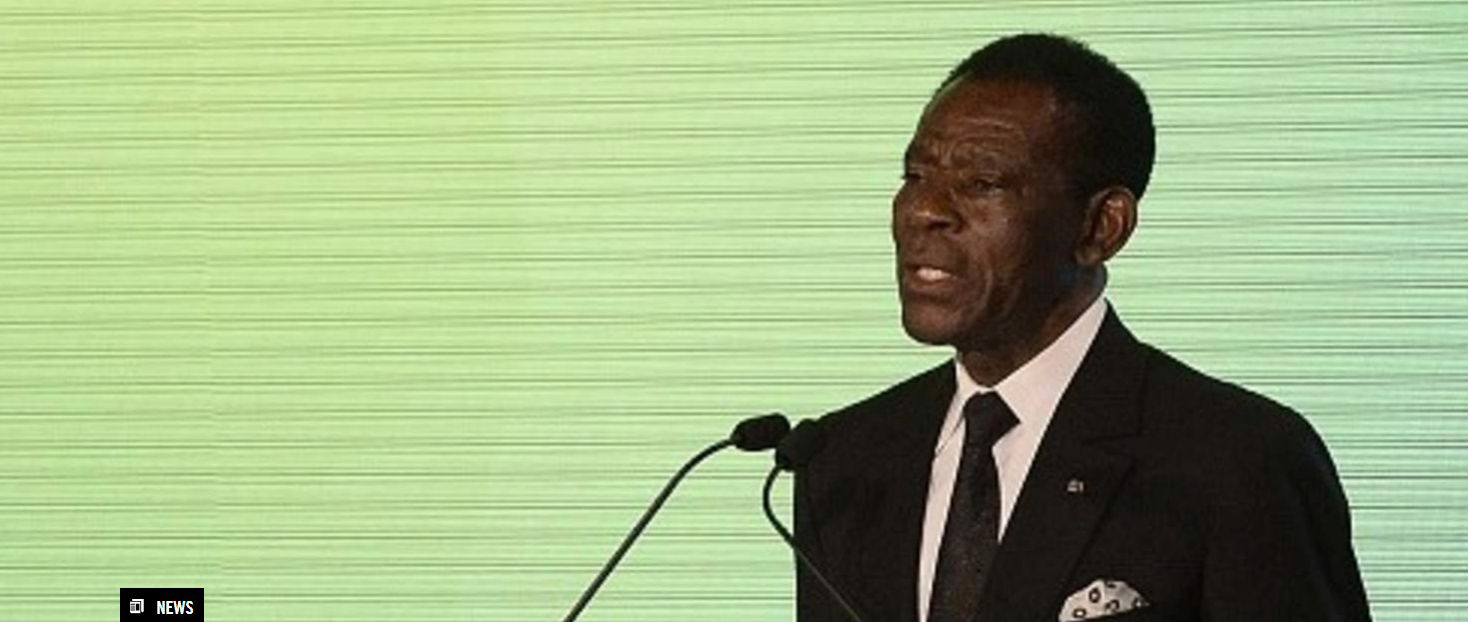Grave Concern Detainees Have Been Tortured, Killed
Equatorial Guinea named a French anti-corruption lawyer in an arrest warrant against 16 people, in apparent retaliation for his involvement in a money laundering trial against the president’s eldest son, nine human rights and anti-corruption groups said today.
The warrant accuses the 16 targets of laundering money and helping to finance “terrorism and the proliferation of arms trafficking in Central Africa.”
Named in the warrant are also people already in police custody accused of participating in a December 2017 coup attempt. They have been unable to communicate with their families or lawyers since their arrest, raising serious concern about their risk of torture and other ill treatment and in some cases their right to life, the organizations said.
“The Equatorial Guinean government has used every trick in the book to shield the president’s son from credible allegations of stealing more than €100 million (US$113 million) in public funds to live a life of luxury in Paris,” said Tutu Alicante, director of EG Justice, an organization that advocates human rights and transparency in Equatorial Guinea.
“Now it seems they are fabricating charges to retaliate against those who helped a French court convict him for his crimes.”
The groups are Human Rights Watch, EG Justice, Sherpa, Amnesty International, Platform to Protect Whistleblowers in Africa (PPLAAF), FIDH under the Observatory for the Protection of Human Rights Defenders, Corruption Watch UK, Rights and Accountability in Development, and World Organisation Against Torture (OMCT) under the Observatory for the Protection of Human Rights Defenders.
Equatorial Guinea’s National Security Ministry released a media statement on January 23 accusing the 16 people of money laundering and financing terrorism. The list included William Bourdon, the lawyer who founded the French anti-corruption legal advocacy group Sherpa, and spearheaded lawsuits in France against close relatives of several heads of state accused of embezzling public funds. The statement does not provide any evidence for its allegations.
“What we are seeing in Equatorial Guinea right now is not new but part of the government’s longstanding pattern of silencing critical voices. Officials regularly harass, intimidate, and arbitrarily detain human rights defenders, lawyers, political opposition members, and anyone else who dares speak out against government abuses,” said Marta Colomer, Amnesty International West Africa Campaigner.
In 2008, Sherpa filed a criminal complaint on behalf of Transparency International – France against Teodorin Nguema Obiang, the son of Equatorial Guinea’s president who at the time was the forestry minister, alleging he spent more than €100 million (US$113 million) stolen from the public treasury in France on a mansion, a fleet of supercars, art, jewelry, and other luxury goods. French law allows civil groups to file criminal complaints.
In 2017, the French court convicted Nguema Obiang in absentia, gave him a three-year suspended sentence and a €30 million (US$34 million) fine. The Equatorial Guinean government aggressively defended Nguema Obiang, going so far as to appoint him vice president soon after the court ordered the case to proceed to trial and suing France in the International Court of Justice, claiming that it had violated Nguema Obiang’s diplomatic immunity. The charges brought against the instigators of the trial appear to be an attempt to retaliate against them and further discredit the trial.
At least two of the people named in the arrest warrant, Onofre O. Otogo Ayecaba and Hector-Santiago Ela Mbang, were taken into police custody in Equatorial Guinea on 28 December 2017, a day after a failed coup. They were arrested along with dozens of others accused of participating in the coup. Their trial related to the coup is expected to take place over the coming weeks, although there are credible concerns that both men have been killed in custody.
A lawyer representing Ela Mbang and nine other detainees told the organizations that no lawyers or family members have been permitted to communicate with them since their arrest, nor have their lawyers been kept apprised of legal developments in the case. Then on February 11, an independent news source reported that the family of Otogo Ayecaba received his body from the authorities.
Soon after Ela Mbang was arrested, he was made to go on state television and appear to implicate specific people in the coup. His lawyer said the government did not acknowledge detaining his client. He said he fears that Ela Mbang may now also be dead and that his name is on the arrest warrant to lay a foundation for the government to claim that he is not in custody, but is at large.
Credible allegations of torture and death in another recent case involving political opposition members heighten concern for these detainees. In December 2017, shortly after the coup attempt, police arrested 147 members of a political opposition group called Citizens for Innovation (CI), many of whom allege that they were tortured in detention. Two members died in detention, which lawyers familiar with the case allege was due to torture.
Some of the remaining 13 people included in the warrant from January 2019 are seeking asylum outside the country, while the whereabouts of others are unknown.
“Given the government’s dismal track record of abuse, the international community should be sounding alarm bells over the treatment of these detainees,” said Sarah Saadoun, a business and human rights researcher at Human Rights Watch.
“Foreign embassies in the country should demand to see the evidence justifying the arrest warrant and insist that lawyers be given access to the detainees already in custody. The embassies should monitor the case closely to ensure they receive fair trials.”
For more information, please contact:
Lucy Scholey, Amnesty International Canada (English): + 613-744-7667 ext. 236; lscholey@amnesty.ca





















